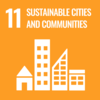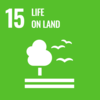Soil organic carbon storage (SOC) is a vital ecosystem service, resulting from interactions of ecological processes. Human activities affecting these processes can lead to carbon loss or improved storage.
Organic carbon is a key component of soil that affects its physical, chemical, and biological properties, contributing greatly to its proper functioning on which human societies depend. Soil organic carbon improves soil structure and reduces erosion, leading to improved water quality in groundwater and surface waters, and ultimately to increased forest health and decreased negative impacts to ecosystems. Recent history understands soil productivity is tied to SOC levels, with the depletion of SOC storages often leading to large-scale impacts on whole ecosystems as well as the entire planet not only in Sundarban Mangrove Forest Soils of Bangladesh.
To develop SOC stocks in Bangladesh, several initiatives have been undertaken: measurement of SOC storages on wetland soils of Bangladesh; soil organic carbon storage measurement of Sundarban mangrove forest soils of Bangladesh and finally, we aim to submit another project; soil organic carbon storages calculation and mapping for Bangladesh.
Annual carbon savings:



